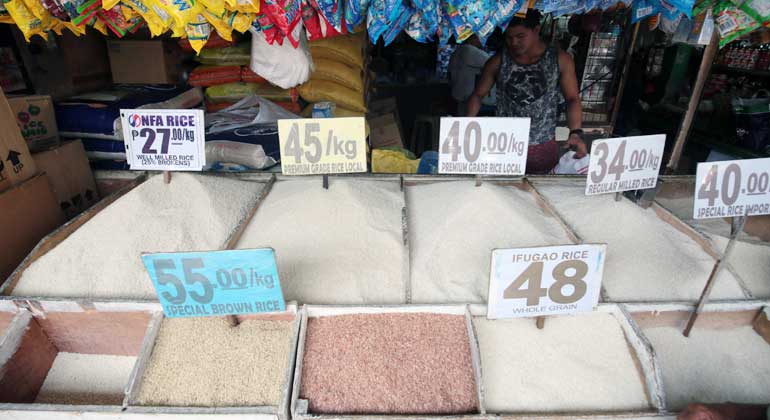
By Beatrice M. Laforga, Reporter
SEVERAL TRADERS have undervalued rice shipments with provisional goods declaration, resulting in P1.4 billion in lost revenues, the Bureau of Customs (BoC) said.
A Finance department statement quoted Customs Commissioner Rey Leonardo B. Guerrero as saying they found the valuation of rice shipments with provisional goods declaration were “quite low compared with the prevailing market prices.”
“But those are subject to post-modification and post-audit. And in the meantime, we are still conducting the post-modification and verifying the payments of rice because some of them are clearly undervalued. So we will catch up in the post modification and post-audit,” Mr. Guerrero was quoted as saying during an Executive Committee meeting at the DoF.
The Bureau of Customs (BoC) accepts a provisional goods declaration if the private traders do not have regulatory permit, clearance or license present during the lodgement. The provisional declaration can be accepted if the duty and tax treatment of the goods would not be different from goods with complete declaration. The rules were outlined under Customs Memorandum Order (CMO) 07-2020 issued in March this year.
The widespread undervaluation of rice imports appear to have been substantiated after BoC concluded an audit of rice traders. Out of the 245 traders that imported rice from March 5 to June 20, 2019, the BoC audited 60 entities with the most number of incidents and highest percentage discrepancies between their declared transaction values and the published reference rates.
Vincent Philip C. Maronilla, Customs assistant commissioner heading the Post Clearance Audit Group, told BusinessWorld the audited rice importers were found to have owed the government more than P1.417 billion in deficiencies of customs duties, penalties, surcharges, and interest.
“In terms of level of compliance, the audit findings show a low level of compliance among the audited importers, as 47 out of 55 auditees, or 85.45%, were found to have committed violations of Customs laws and regulations in more than one of the issues discussed in the preceding section, and only 8 auditees were found to be compliant with their obligation to ensure the truthfulness and accuracy of the goods declaration,” Mr. Maronilla, who is also the agency’s spokesperson, said in a Viber message Tuesday.
The BoC launched the inquiry in August 2019 after the Federation of Free Farmers (FFF) warned the government may not meet its target collections since imported rice were being undervalued by traders to evade tariffs.
“The audit of import transactions, resolution of undervaluation cases, and actual collection of the correct tariffs, is long overdue. We reported this to DoF last August 2019 and followed it up again this year when we saw that the degree of undervaluation appeared to have worsened,” FFF National Manager Raul Q. Montemayor said in a Viber message Tuesday.
Data on the volume of rice imports that had been subjected to audit was not available as of press time.
“There were also imports from India and Pakistan were assessed the ASEAN rate of 35% tariff instead of 50%; there is no need to investigate this and BoC should have immediately collected the tariff differential. Part of the problem also arises from the wrong tariff code classification of various types of imports which we thought BoC would immediately address but which we can see from their weekly price memoranda they have not done so yet up to this time,” he added.
The rate of tariffs slapped on imported rice was increased to 35% of the declared value under Republic Act 11203 or the Rice Tariffication Law after the quantitative restrictions were lifted.
Rice tariff collections hit P11.036 billion in the seven months to July, up 4% from a year ago and higher than the BoC’s annual P10 billion target for the Rice Competitiveness Enhancement Fund (RCEF). RCEF supports farm mechanization and other measures to allow farmers to better compete against imports.
